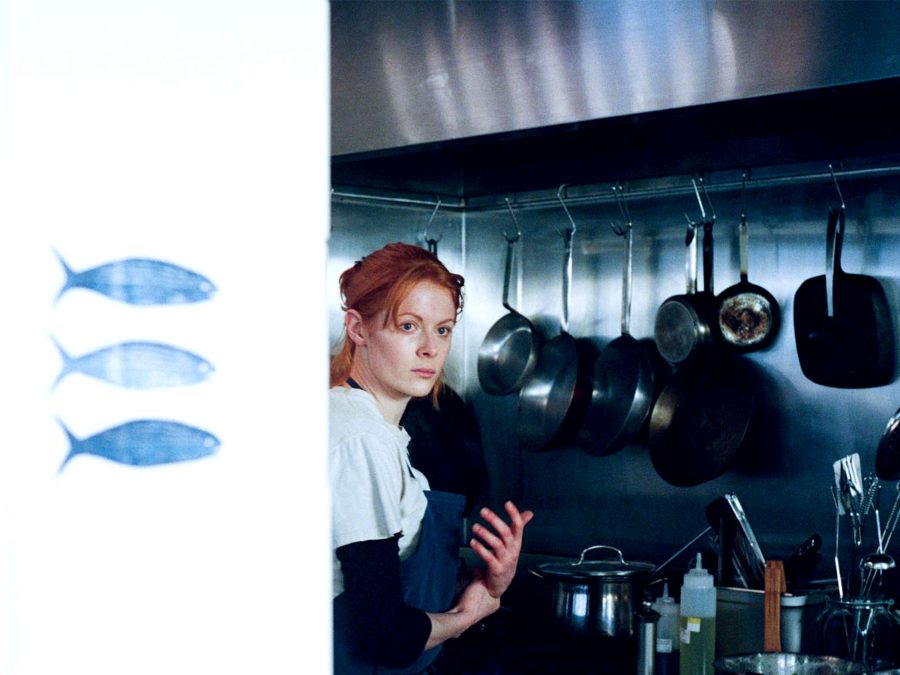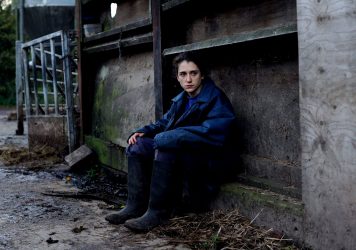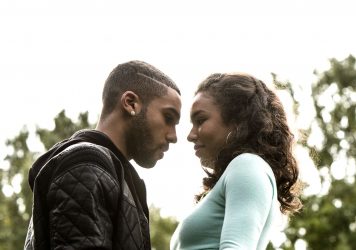Emily Beecham puts in a star-making turn in this soulful debut feature from Peter Mackie Burns.
London is currently playing host to a rash of crimes where young teenagers toss acid in to the face of random strangers as the prelude to a theft. On the news, anchors describe how these attacks result in “life-changing” injuries, emphasising that, in an instant, fate can deal you the bummest of bum hands.
Peter Mackie Burns’ soulful debut feature Daphne explores a similar conundrum, as it follows a young, single, bewildered woman as she witnesses a stabbing in an all-night off licence. One moment it’s tipsy revelry and basking in the romantic glow of twinkling street lamps, the next it’s the insta-sobering moment where you’re clutching a man as he bleeds out on the deck, requesting to glimpse a grubby photograph of his children before he potentially shuffles off. How can a person just carry on regardless after this shot of high trauma?
This is the kind of fragile, high-wire character piece that lives or dies on the strength of its lead performance, and luckily Burns has drafted in relative newcomer Emily Beecham as the eponymous heroine. Actually, “heroine” isn’t exactly the right term to describe Daphne – she’s more of an impetuous focal point who, on the wrong side of 30, is locked in a constant tailspin.
Her dominant trait is that she always says yes until you give her just one small reason to say no. She’s impulsive, but only in the company of like-minded souls. Self-doubt and sensible behaviour lead to instant rejection, as if she can’t abide the residual responsibility of others. It’s like she can only feel happy if she is able to see other people making all the same bad decisions that she is.

She works in a restaurant where all the staff wear muslin aprons, but only so she has the cash to go out and get drunk when her shift is over. Smoking numbs the pain of her loneliness. She has acquaintances rather than friends, and human contact comes in the form of watchful randos, like an amorous bouncer or the delivery guy of the local Indian takeaway. Daphne is not a likeable or endearing character in any sense – you want to shake some sense into her.
But Beecham works hard to make sure an empathetic core is visible through the mire of confusion and narcissism. She’s not a bad person, she’s just a lost person who’s finding it very tough to be good. Her long night of the soul comes after one of her customary drink-ups where a quick nip into a shop for fags leaves her with weeping existential scars. Yet this is no conventional epiphany, as it sends Daphne even further down her furrow of solitude. Her depression has reached a dangerous low that borders on the nihilistic.
The brooding negative emotions are brought to life by the original and atmospheric depiction of a city that’s anonymous, mysterious and shorn of iconic landmarks. If the film has any issues, it’s that some of the interactions err on the synthetic – they feel too much like visual representations of words on a page. There are numerous meet cutes that come to nothing, and there’s the feeling that Burns is trying too hard to achieve a free-owing naturalism through carefully calibrated performances. But it’s Beecham’s combustible, subtly alienating and hopefully star-making central turn that gives this flighty film its wings.
Published 25 Sep 2017
Could a new star be born in the lead of this low-key character piece?
Yes she could, even though the film itself has some niggles.
A work (and a performance) that matures in the mind.

Hope Dickson Leach announces herself as the great white hope of British film with this quietly devastating debut.

The star of Daphne talks likeable characters, Fleabag and seeing Nicole Kidman in the nude.

By Lou Thomas
Contemporary stories offering a diverse mix of authentic, recognisable London voices.